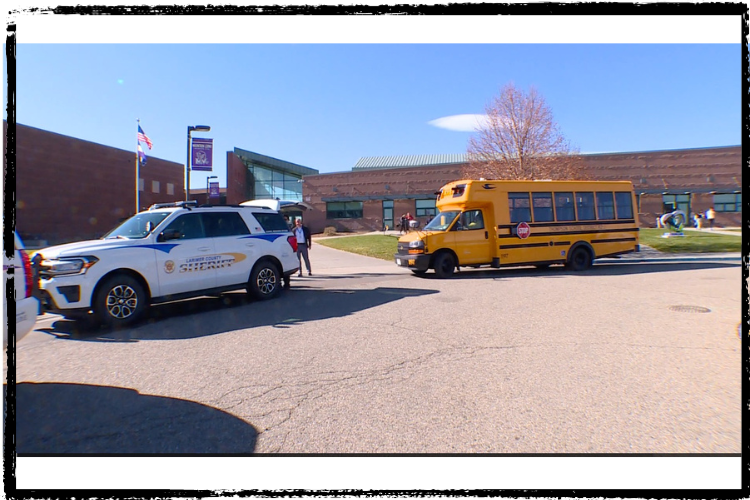By Marc Sallinger, 9News
Thompson School District pairs co-responding teams inside schools
LOVELAND — Seeing a police car outside a school is about as common as seeing a school bus these days.
While nearly every district has school resource officers, very few employ mental health clinicians to work with them. A school district in northern Colorado has paired social workers with sheriff’s deputies to respond to mental health emergencies inside schools. Similar co-responder programs have been successful outside of classrooms in cities across the state.
"I like to think of myself as a resource queen. Anything that you need, I can either find it, get you connected, make it low-cost and efficient for you," said Maryann Ramos Flynn, a trained social worker who works with SummitStone Health Partners and contracts with the Larimer County Sheriff's Office for the co-responder program. "I have been trained to understand behavior, and that behavior is a form of communication."
Brendan Solano is a school resource officer with the Larimer County Sheriff’s Office. Together, they’re part of the Thompson School District’s (TSD) new Youth Crisis Response Team. It’s a co-responder program sending a deputy and a clinician to calls involving mental health inside schools.
"We’ve noticed that some students prefer to talk with her instead of talk with me, but we’ve seen it the other way around as well," said Solano. "Together, we bring that to the table and can work together as a team."
The model has been successful outside of schools, with departments across the state launching co-responder programs. It comes with the realization that not all calls require a badge and a gun.
"There are many things that happen throughout the school day that don’t necessarily need a law enforcement response, but they need a response that is bigger than what a school can give them," said Joe Vodjansky, safety and security manager for the TSD. "Our goal is to make sure we give them the tools that they need so that we can prevent that next crisis, that next call for service."
Vodjansky helped launch the program working for the district. Sgt. Robert Cook worked to start it at the sheriff’s office. "It really takes a co-responder model to deal with mental health situations," said Cook. "Having a clinician and a school resource officer teamed up together, it really brings the best of both worlds."
In the one week, since it started, the team has already responded to 12 calls.
This is believed to be the first co-responder program in the state inside schools. The clinician has the power to connect students and families with more resources that school counselors don’t have. The co-responder team can respond to anything from students making threats to kids just having a bad day and needing to talk to someone.
"All we’re trying to do is say, if we just bring more people to the table, we can have a stronger response and hopefully a more informed response to provide ongoing support," said Ramos Flynn. "If I can go to the student’s home with them to provide more support, if I can work with families outside of traditional school hours, I’m there for that."


